
Fourth Meeting of the Heavy Oil Working Group
Tuesday, September 22, 2015
The Sheraton Bogotá Hotel
Calle 25 B Nº 69 C-80, Bogotá, Colombia
Overview
The Heavy Oil Working Group was launched in April 2010 at the Energy and Climate Partnership of the Americas Ministerial in Washington, D.C. This Group brings together regional partners from the Americas to share experiences with heavy oil, provide updates on the current state of technology, and discuss other areas of mutual interest, such as environmental and policy issues involved with heavy oil development.
The third meeting of the Heavy Oil Working Group was held on April 19, 2012, in Mexico City, Mexico. The meeting included participants from government, academia and other organizations from Brazil, Colombia, Mexico, Trinidad and Tobago, the United States and Canada.
The fourth meeting of the Heavy Oil Working Group was held on Tuesday, September 22 in Bogota, Colombia. The meeting included participants from government, academia and other organizations from Canada, Colombia, Ecuador, Mexico, Venezuela and United States.
Canadian Ambassador Carmen Sylvain and Frank Des Rosiers, Assistant Deputy Minister, Natural Resources Canada provided opening remarks to begin the meeting. Both emphasized the importance of a forum for dialogue on heavy oil issues that could identify the challenges and opportunities for the sector as well as seek solutions.
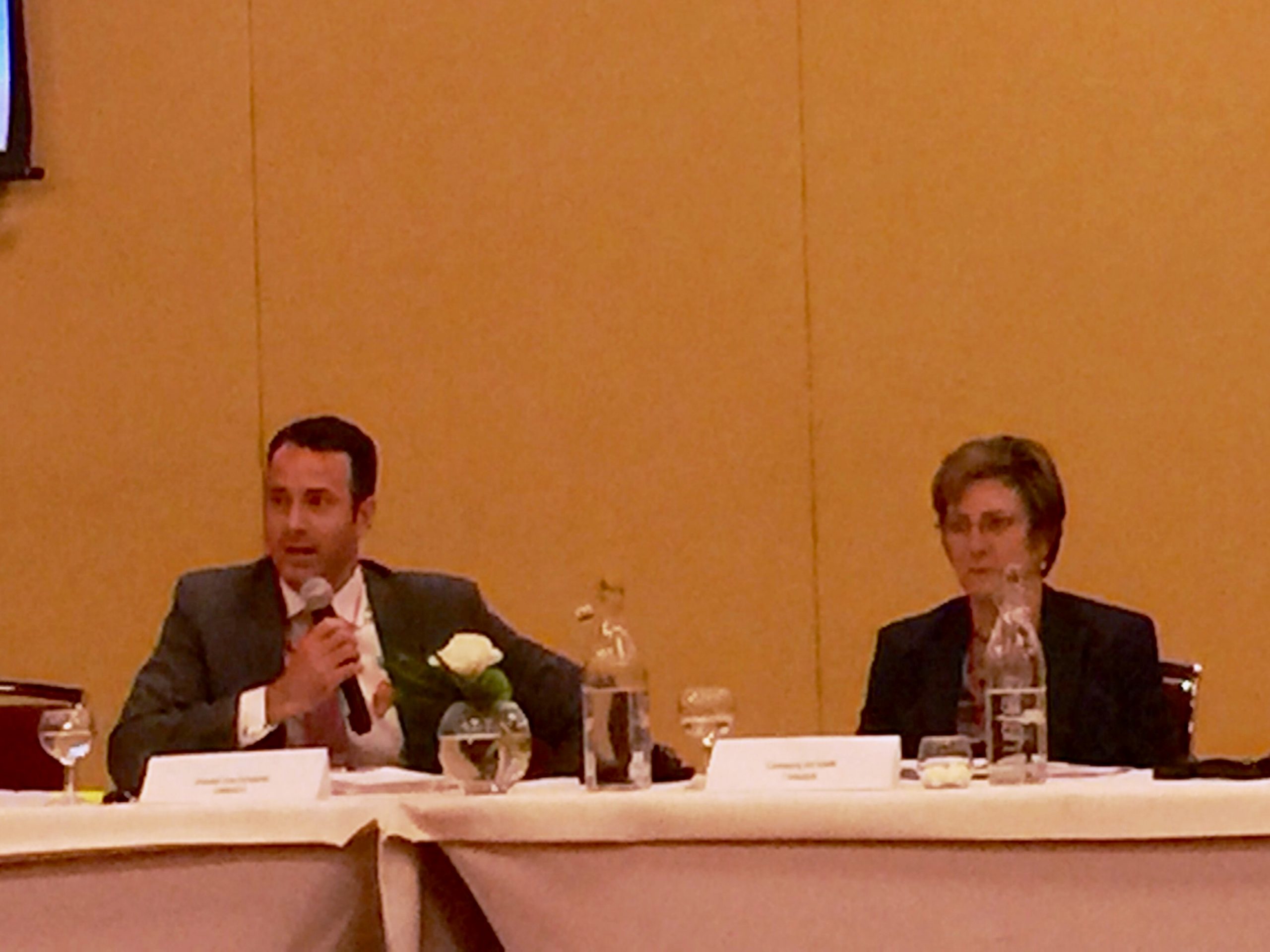
Left to right: Frank Des Rosiers, Assistant Deputy Minister, Natural Resources Canada and Canadian Ambassador Carmen Sylvain
The meeting was moderated by Eduardo Sánchez, Senior Climate Change Advisor, Colombia Ministry of Mines & Energy, Frank Des Rosiers, Assistant Deputy Minister, Natural Resources Canada and Rodrigo Hernández Ordoñez, Deputy Director General, Mexico Secretariat of Energy (SENER). The meeting included a combination of presentations, questions and answer periods to foster discussion on particular issues.
Session 1: Improving Heavy Oil Production through Solvent Conservation and Mitigation of Emissions
Reducing pollutant air emissions from oil and diluent storage tanks while optimizing the heavy oil treatment process, is a common challenge being faced by heavy oil producers. Traditional treatment processes can result in a significant evaporation of valuable solvents and the subsequent flaring or venting of volatile organic compound (VOC) rich gases, which result in potent Short-Lived Climate Pollutants (SLCPs) and toxic air emissions.
This session focused on technologies and practices to optimize heavy oil processing and recover valuable and readily condensable solvent VOCs, and technologies to quantify and control SLCPs and toxic air emissions. The panel discussion included countries such as Colombia and Mexico that have recently undertaken projects to evaluate opportunities for process optimization and new emissions control technologies to improve solvent conservation, reduce crude oil viscosity, increase the value added to these products, and reduce SLCPs and toxic air emissions.
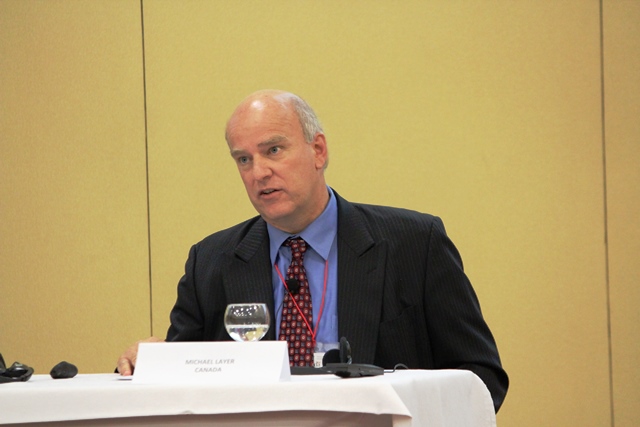
CANADA: Michael Layer, Senior Program Manager, CanmetENERGY-Devon Research Centre, Natural Resources Canada
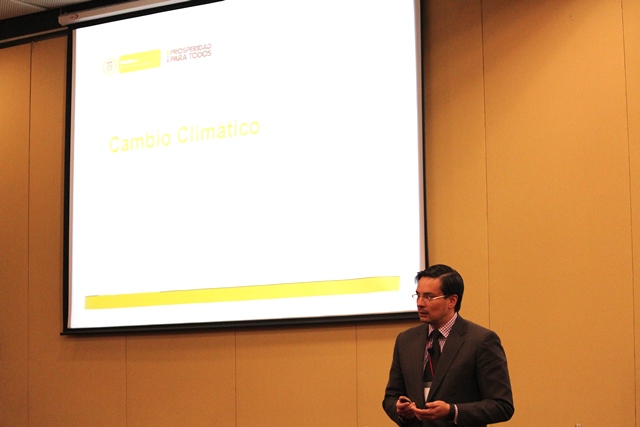
COLOMBIA: Eduardo Sánchez, Senior Climate Change Advisor, Colombian Ministry of Mines & Energy
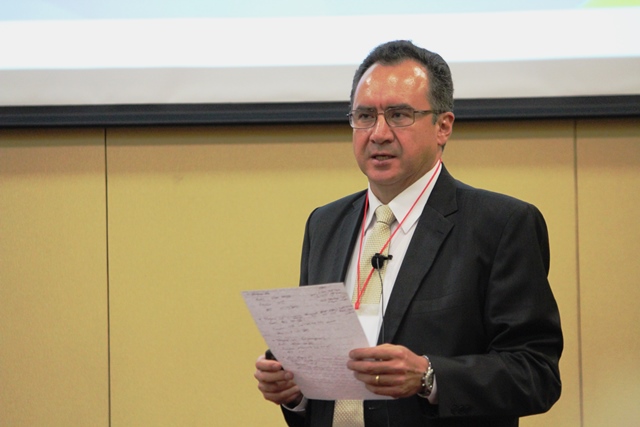
ECUADOR: Pablo Luna, National Operations Manager, Petroamazonas
Session 2: Challenges with the Production of Heavier Crudes
There are certain challenges associated with the transportation, upgrading and refining of increasingly heavier crudes. For instance, transporting heavy crudes often entails the use of diluents to reduce the oil’s viscosity. Some of the challenges that diluents present include: 1) securing a reliable source, 2) cost considerations (in terms of currency and energy), and 3) the added infrastructure needed to return the recovered diluent for reuse.
This session included a discussion of potential diluent reduction technologies as follows: 1) partial upgrading, to meet requirements for pipeline transportation, 2) advancements in modelling of heavy oil chemistry, components and properties, 3) lifecycle analysis (LCA) assessments, and 4) processing and refining mixed feedstocks.
Finally, the stability, compatibility and fouling research, related to partially upgraded products during refining, will highlight the potential for processing efficiency advancements and GHG emission reductions.
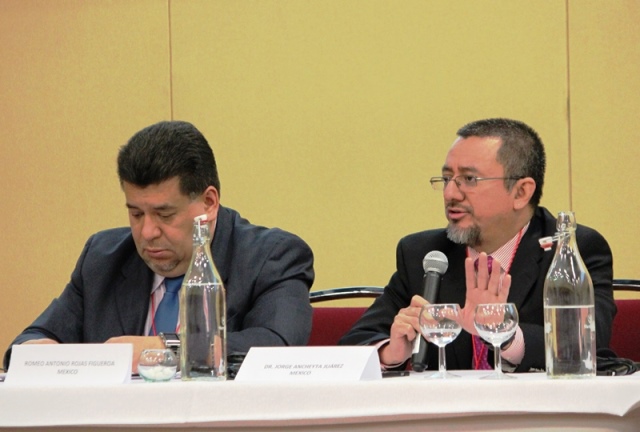
Jorge Ancheyta, Senior Manager, Mexican Petroleum Institute (IMP), Secretariat of Energy (SENER) and Romeo Antonio Rojas, Engineer, Petróleos Mexicanos (PEMEX)
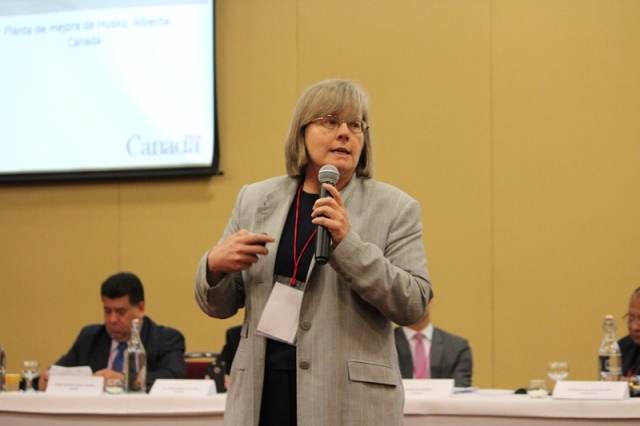
Kim Kasperski, Senior Director, Research and Development, CanmetENERGY-Devon Research Centre, Natural Resources Canada
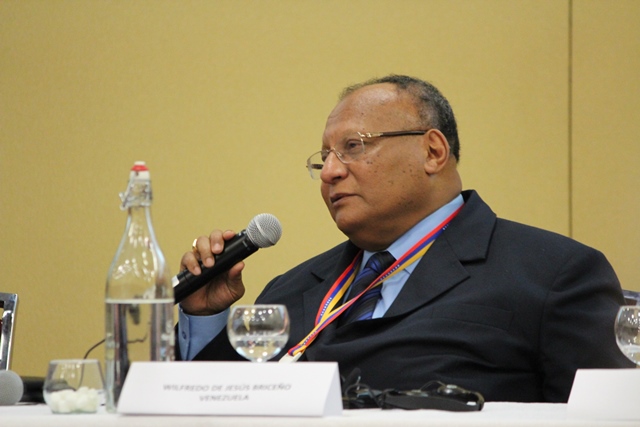
Wilfredo Briceño, President, Venezuelan Institute of Petroleum Technology (INTEVEP- PDVSA)
Session 3: Environmental Remediation: Responding to On-shore and Offshore Heavy Oil Spills
The session addressed knowledge gaps in understanding the range of physical behaviors that transported heavy oils can have when spilled in aqueous environments. Current research aims to strengthen oil spill preparedness and response in the case of spills either offshore from tanker shipping (marine environments), or onshore from pipelines (freshwater environments). Recent results that compare the spill behaviour of conventional crude oils to that of diluted heavy crude oils were presented, as well as the factors that affect this behaviour.
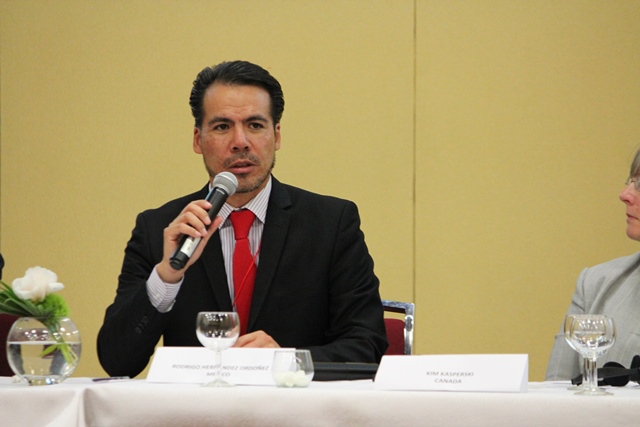
Rodrigo Hernández Ordoñez, Deputy Director General, Secretariat of Energy (SENER)
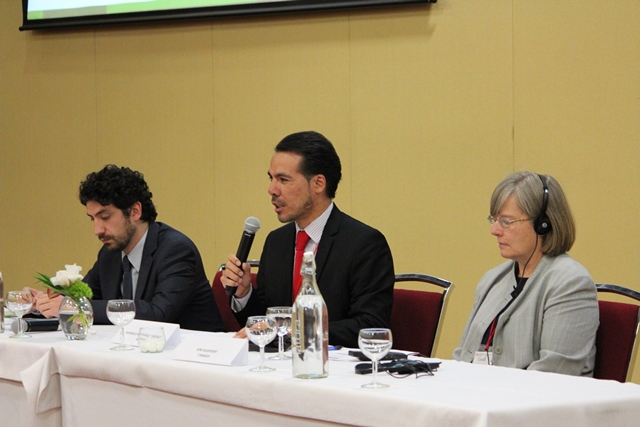
Left to right: Francisco José Gómez Montes, Rodrigo Hernández Ordoñez and Kim Kasperski
Wrap-up and Closing Remarks
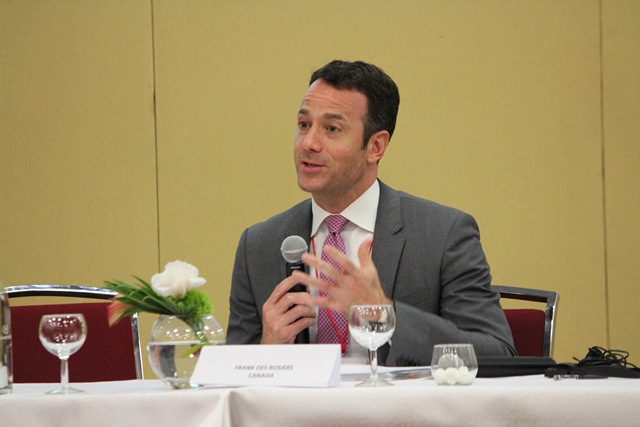
Frank Des Rosiers, Assistant Deputy Minister, Natural Resources Canada